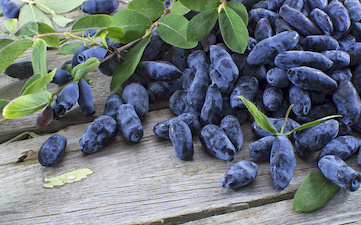
Under EU regulations, any food that was not consumed “significantly” prior to May 15, 1997 is considered to be a Novel Food (EU) 2015/2283) and requires a pre-market authorization. According to the Novel Food Regulation, two types of applications – for “typical” Novel Foods (Article 10) and for traditional foods from third countries (non-EU) (Article 14) are possible.
As with other Novel Foods, traditional foods from a third country can only be placed on the EU market when the European Commission has adopted an implementing regulation authorizing the placing on the market of the traditional food. The notification for the placing on the market of a traditional food from a third country is sent to the Commission, who forwards it to all the Member States and EFSA. If there are no objections, the traditional food will be authorized by the EC for the EU market. In case a Member State or EFSA submits reasoned safety objections, the notification can be transformed into an application (Article 16).
To prepare the required technical dossier, it is advisable for applicants to follow the EFSA guidance for the preparation and presentation of notifications for traditional foods from third countries. This guidance aims to assist applicants with the preparation of a well-structured notification dossiers pursuant to Article 14 and applications concerning the data on the history of safe use in a third country pursuant to Article 16 of Regulation (EU) 2015/2283. Under this type of notification, food produced by primary production (e.g. harvesting, fishing, or hunting etc.) with a continued, traditional use over a period of 25 years in at least one country outside the EU may obtain marketing permission based on a notification procedure according to Article 14 of Regulation (EU) 2015/2283. In that case, the safety of the respective foodstuffs results from the proven history of safe use. The safety of a traditional food should be substantiated by reliable data on its composition, its experience of continued use, and its proposed conditions of use in the third country. The specifications of the traditional food and intended conditions of use in the EU must also be provided. If the formal requirements are met, it will take about 1 year from submission to authorization.
This notification procedure opens great opportunities for food business operators such as processors of exotic fruits and vegetables or traditional foodstuffs from countries outside the EU. Recent examples of notifications for traditional food from third countries currently under evaluation are cacao fruit pulp (Theobroma cacao L) by Cabosse Naturlas NV and cocoa pulp, and of products thereof by Nestec York Ltd. These notifications (although still pending for the EU market) come in line with recent innovative developments e.g. by Nestlé. The Swiss company announced this month that it has created a unique chocolate made entirely from cocoa fruit, using beans and pulp as the only ingredients and therefore not adding any refined sugar. This innovative chocolate formulation is planned to be launched in Japan in autumn.
If you would like to speak to our Novel Food experts get in touch. Our team can support you in the development of innovative solutions.
